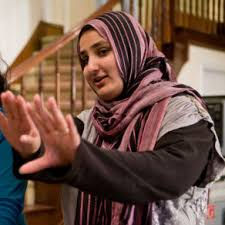Rached Ghannouchi: A Solid Voice of Democracy in the Barren Lands of Muslim Despots
- Aslam Abdullah
- Aug 30, 2023
- 4 min read
Updated: Sep 11, 2025

He is a staunch advocate of democracy and believes in a pluralistic world. He has a solid commitment to Islam, yet in Tunisia, the home of 99 percent of Muslims, he developed an alliance with secularists to initiate the process of creating a vital country for the welfare of its people. As a thinker, a philosopher, and an activist, his life revolves around serving his people. He is in prison now because the despots are afraid of the voices of democracy.
Four prominent human rights organizations, the International Commission of Jurists (ICJ), International Service for Human Rights (ISHR), Amnesty International, and Human Rights Watch (HRW), in a letter to the Human Rights Council during its 53 session in June 2023, expressed severe concerns about the deteriorating political situation in the country. They said that during the last few years, Tunisia witnessed a significant rollback on human rights. The authoritarian ruler dismantled judicial independence guarantees and subjected individual judges and prosecutors to arbitrary dismissal, politicized criminal prosecutions, and increased executive interference. They accused the government of prosecuting lawyers for discharging their professional duties and exercising their right to freedom of expression.
Since the beginning of 2023, a wave of arrests targeted political opponents and perceived critics of Tunisia's President, Kais Saied. Judges are investigating scores of people, such as dissidents, opposition figures, and lawyers, for allegedly conspiring against the State or threatening State security, among other charges, with 17 investigated under Tunisia's 2015 counter-terrorism law.
One such prisoner is Rached Ghannouchi, the leader of Tunisia's main opposition party and a strong critic of authoritarianism, on charges of incitement against the State. Kais Saied, the despot of Tunisia who, in 2021, also dissolved the democratically elected Parliament and closed the Ennahdha headquarters, the party Ghanoushi founded in 1998. Ennahdha, established to promote democracy, freedom, and justice for all, played a crucial role in toppling the longtime dictator Zine el Abidine Ali in 2011.
The 82-year-old Ghannouchi is the best-known Muslim philosopher, thinker, and political activist whose contribution to democracy and peace has broad appeal worldwide. He was one of Time's 100 Most Influential People in the World in 2012 and Foreign Policy's Top 100 Global Thinkers. He received the Chatham House Prize in 2012 (alongside Tunisian President Moncef Marzouki) by Prince Andrew, Duke of York, for "the successful compromises each achieved during Tunisia's democratic transition."
In 2016, he also received the Jamnalal Bajaj Award for "promoting Gandhian values outside India." On 13 November 2019, Ghannouchi was elected Speaker of the Assembly of the Representatives of the People.
Born into a poor farming family in 1941, 15 years before Tunisia gained its freedom from French colonial rule, Ghannounchi is a graduate in theology. Ez-Zitouna University is a prestigious and historic Islamic learning center founded in 737 CE., 105 years after the Prophet Muhammad.
He studied agriculture at Cairo University in Egypt in 1964 and then moved to Syria to complete his studies in philosophy at the University of Damascus in 1968. He went to Paris the following year to pursue higher education at Paris's Sorbonne University in France.
In the early 1970s, Ghannouchi laid the groundwork for a movement with a small group of young thinkers disillusioned with Tunisian authoritarian leader Habib Bourguiba. He advocated multiparty democracy. In 1981, he founded the Islamic Tendency Party, the forerunner of the Ennahdha Party.
Algerian political thinker Malik Bennabi was his inspiration, who wrote extensively on the need for Islam to play a role in the public sphere, but not as the sole voice.
Ghannouchi's book Public Freedom emphasizes the idea of people's ultimate sovereignty over all institutions, including religion.
The authorities imprisoned him twice in 1980; in 1993, he moved to London to spend the following years in exile.
He returned to Tunisia in 2011 after longtime leader Ben Ali had fled the country following weeks of protests. Under his leadership, Ennahdha emerged as the largest party in the country's first parliamentary elections since the removal of Ben Ali, winning 37 percent of the vote. He refused to take a government position; He helped draft the constitution in 2014. In 2019, his party persuaded him to accept the part of Parliament speaker.
In 2021, Tunisia's President Kais Saied dismantled democratic institutions, including the Parliament, and declared that he would rule by presidential decree. A year later, he adopted a new constitution, giving his office vastly expanded powers.
Ghannoushi believed that the people would rise to defend and save democracy, but overlooked that the State, with its police and military force, can suppress people brutally to preserve the interests of national and foreign special interest groups.
He believes in the actual democratic power of people to take their destiny into their own hands and calls for a broader coalition of Tunisians to use their resources for the welfare of their values. His frame of reference is Islam, which serves to ensure the dignity of all. Tunisia is 99 percent Muslim, yet he stood with secularists to take his country to new heights. The special interest groups see the democratic movement as a threat to their interests and have tried to silence his voice.
He is a Muslim political thinker who offers a new paradigm of thinking, as he is relevant for the emerging generation that believes in equality, prosperity, progress, dignity, and justice for all.



Comments